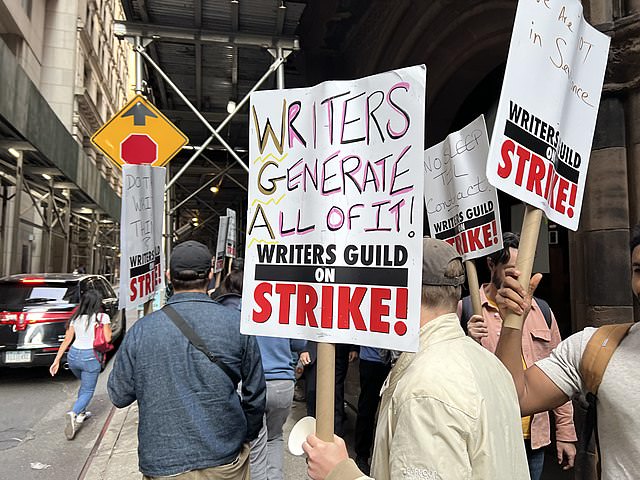Entertainment
‘What About Us?’ Hollywood Actors and Writers Strike For More Pay - ‘Protect Us’ From AI
By Belal Awad · July 19, 2023

Hollywood actors and writers continue their major strike action demanding fair pay and protection against the growing reliance on artificial intelligence (AI) in the entertainment industry. The strike - the likes of which have not been seen in decades - has pushed income and technology to the top of Hollywood’s agenda, top entertainment lawyer Domenic Romano told Fox News.
At the center of the strike are the rank-and-file actors, who, contrary to popular belief, often struggle to make ends meet. Romano said that will headline stars have joined the picket lines: “The vast majority, actually 87% of actors in the union, make less than $26,000 a year. So basically, the stars are aligning and getting together for the rank-and-file,” said Romano.
According to Romano, the low incomes mean many actors do not even qualify for health insurance, forcing them to take additional jobs to survive. The situation has been exacerbated by the rise of streaming services and social media, which have cut into actors’ residual revenues, once a reliable source of income. At the same time, entertainment executives continue to be paid unprecedented amounts of money. “Actors,” said Romano, “are looking at this dynamic and they’re shrinking residuals and they’re saying, ‘Hey, you know, what about us?’”
The strike also highlights concerns over AI and its potential impact on the industry. Actors and writers are demanding compensation for the use of their images and interpretations of AI-generated content. “They are asking that they be compensated for the AI consuming their interpretations, their images; and the writers more than the actors,” Romano explained.
The studios claim, meanwhile, that they face increased competition from platforms such as TikTok and online gaming, which have taken a large bite out of ad revenues. The actors and writers argue they should not bear the brunt of poor business decisions made by overpaid executives. As negotiations continue, the future of Hollywood hangs in the balance. Demands for fair pay and AI compensation may result in higher costs for consumers.
The strike has opened discussions not only about fair wages but also about the ethical implications of AI-generated content. The potential loss of creative control and income for actors and writers raises vital questions about the responsible use of AI in the entertainment industry. “They should be compensated for those inputs…the actors’ interpretations being used by machine learning or artificial intelligence to create something new,” Romano emphasized.
The coming weeks will be crucial in determining how this conflict unfolds as actors and writers demand pay raises and protections and studios look to safeguard the bottom line.